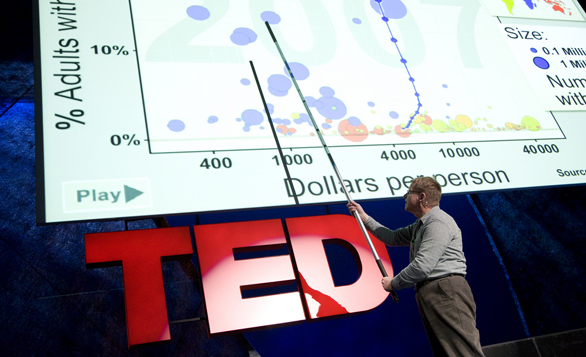
Hans Rosling gives one of his patented talks on world population statistics at TED2009. Photo: Asa Mathat
Today, July 11, is World Population Day. Established by the Governing Council of the United Nation Development Program in 1989, to commemorate the day global population reached five billion two years earlier, World Population Day strives to raise awareness about the issues created by the growing number of people in the world. Twenty-four years later, five billion seems like a distant memory. The global population was estimated at 7,025,071,966 this day last year.
As you think about the meaning of World Population Day, here are five talks on world issues that imagine both problems and solutions on a large scale.
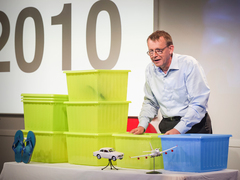 Hans Rosling: Global population growth, box by box
Hans Rosling: Global population growth, box by box
Hans Rosling on global population growth In the next 50 years, the world’s population will grow to 9 billion people. Using a creative visualization method (you’ll see), Hans Rosling shows how the growing global population breaks down by income level — and comes to a surprising conclusion about how to help global living standards rise for everyone. Watch his other eight talks for more on global trends. |
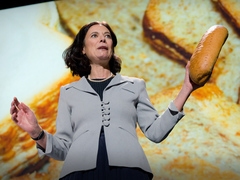 Louise Fresco: We need to feed the whole world
Louise Fresco: We need to feed the whole world
Louise Fresco on feeding the whole world While Louise Fresco admires the local food revolution, she doesn’t think it’s the key to increasing the quality of food and ending global hunger. In this TED2009 talk, she highlights the real change that needs to be made to feed the world. |
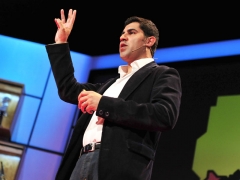 Parag Khanna: Mapping the future of countries
Parag Khanna: Mapping the future of countries
Parag Khanna maps the future of countries In a world of over 200 countries, it is easy to accept borders as absolute. However, as Parag Khanna explains in this TEDGlobal talk, infrastructure, population, ethnicity and economic influence reveal a bigger picture and a more united world. |
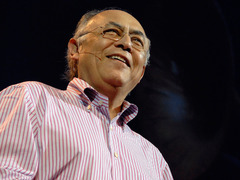 Hector Ruiz: The thinking behind 50x15
Hector Ruiz: The thinking behind 50x15
Hector Ruiz on connecting the world Hector Ruiz believes that everyone should have Internet access. In his TEDGlobal talk, he describes AMD’s 50×15 initiative, striving to bring Internet access to 50% of the world by 2015. |
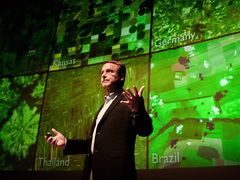 Jonathan Foley: The other inconvenient truth
Jonathan Foley: The other inconvenient truth
Jonathan Foley: The other inconvenient truth Agriculture has become the largest cause of climate change, biodiversity loss and environment degradation, and with ballooning populations, it’ll only get worse. In his TEDxTC talk, Jonathan Foley proposes “terraculture” farming, blending the best of commercial agriculture, environmental preservation, and the local food movement to feed our people and protect our planet. |
For more information about World Population Day, visit the United Nations Population Fund »
Comments (4)